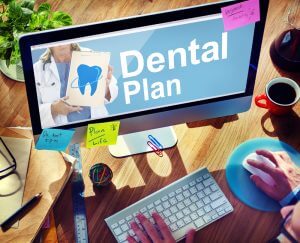The Problem
Traditional Dental Insurance Plans
For many, routine dental care has become cost prohibitive. Most individual dental insurance plans cost over $500 per person per year whether the insured visits the dentist or not. Along with these annual costs, the copay at the time of service will typically be over 20% for fillings and 50% for crowns. Increasingly, many of the most expensive dental procedures requiring a dental specialist, are not covered by the dental insurance plan. When access to specialists is included in the plan, there may be a long wait to receive this coverage.
While health insurance is intended to hedge against unexpected health crises, dental insurance is generally used to cover the cost of routine appointments such as cleaning. Dental insurance does not financially offset more expensive dental work such as dental surgery.
The Affordable Care Act
The recently enacted Affordable Care Act (ACA), considers pediatric dentistry to be an “essential health benefit.” Therefore, health plans are required to provide dental insurance for children in order to comply. There is no such requirement, however, for adult dental coverage, nor is adult dental coverage a legal requirement.
According to a recent report compiled by the American Dental Association (ADA), dentistry in the United States is in a “period of transformation.” The ADA cites several reasons for this:
- An aging and more diverse population
- The Affordable Care Act is changing the health care delivery system standard
- American consumers’ spending habits rely more on technology and value for spend
- Dental care financing is in a state of flux
Adding to the Association’s concerns is the fact that as we age, fewer Americans have the ability to pay for dental services. The ADA notes that payment for dental services is shifting from commercial dental insurance through an employer to public coverage (i.e. dental plans) and personal out of pocket payments.
Health coverage is changing as fewer employers are providing health insurance that includes dental coverage and public programs, such as dental plans, are providing more coverage to more Americans. In 2000, employer-supplied insurance (ESI) stood at 70%. In 2011 that statistic had dropped to 60%. Additionally, health care costs have been rising continuously. Increasingly, even when an employer offers health insurance, dental coverage is often refused in an attempt to lower the overall cost of healthcare.
At the same time, a 2012 survey by the National Association of Dental Plans (NADP) shows that dental plans purchased by individuals increased from 8% in 2007 to 12% in 2012. Dental plans are favored by an aging population leaving ESI in large numbers, and a younger demographic wishing to pay for dental care only when it is needed and at a discounted fee.
The Solution
Discount dental plans are affordable dental insurance alternatives. They are not dental insurance. Members pay a modest annual fee for access to discounted dental care. Individuals still pay for their dental services and procedures, however they are charged a discounted rate for the same procedure compared to patients who do not have a discount dental plan.
Unlike dental insurance, discount dental plans are available directly, not through an employer. So anyone, regardless of age or employment status, can take advantage of their money-saving benefits. This is helpful to those whose employer doesn’t offer any kind of dental option in their group benefits plan, or for the unemployed, self-employed, who do not work outside of the home, and those who may not have access to affordable dental insurance.
Membership in a discount dental plan also provides access to a large network of participating dentists who offer their services at reduced rates. For routine dental procedures such as X-rays, cleanings, and even root canals, members pay less than the full price for services. In some cases, insurance doesn’t even cover some of the services and procedures discounted by a dental plan.
Why Are Dental Plans Gaining in Popularity?
There are many reasons why a family might choose a discount dental plan over traditional dental insurance, including the facts that:
- Not all employers offer traditional dental insurance
- Dental insurance premiums are more expensive than dental plan fees
- Dental insurance has a maximum benefits cap
- Dental insurance has restrictions
- Some services and procedures performed by dental specialists are not generally covered by dental insurance
Dental Discount Plans
Whether monthly or annually, the cost of a dental discount plan is usually significantly lower than that of dental insurance. Remember, dental plans are not dental insurance. Look at them as being more like a membership that opens up discounts on specific procedures.
The discounts associated with a dental discount plan can be up to 60% for certain services. Given the lower cost and guaranteed savings, dental discount plans can often save more money for individuals as well as families. Another outstanding feature is that many of the drawbacks associated with traditional dental insurance —such as deductibles, waiting periods, annual maximums, and paperwork— are not issues with dental plans.
If you and your family expect to be spending a lot of time and money at the dentist in the future, dental discount plans are a great savings too. A traditional insurance plan is expensive, and with frequent visits you may quickly hit the annual maximum after which every expense is out of pocket. Dental discount plans will allow financial savings on most all procedures, with no cap on total savings, and eliminate the paperwork, waiting periods, age caps, and other restrictions associated with traditional insurance.
Conclusion
Today there are several paradigm shifts shaping the future of dental care in the United States. First, there is the largest demographic: an older, more diverse population who no longer have access to an ESI, are on a fixed income, and who may not be able to afford to pay entirely out of pocket. They are followed by a younger demographic seeking greater value for their spend and who use technology to assist them to make their independent healthcare decisions.
Ever increasing healthcare costs are not only impacting families, individuals, and the elderly. More employers are electing not to offer health insurance to their employees. This leaves alternative dental plans as the best option. Again, these plans are not dental insurance, but reduced fees for members. These options are increasingly providing the best solution for improved dental care at reasonable cost.
**********************************************************************************************************
EDP Dental Plans is a leading discount dental plan that provides discount dental plans for individuals, families and couples. EDP has a network of highly qualified practitioners who offer their services at a discount. To learn more about our services, please visit our website or enroll today!







